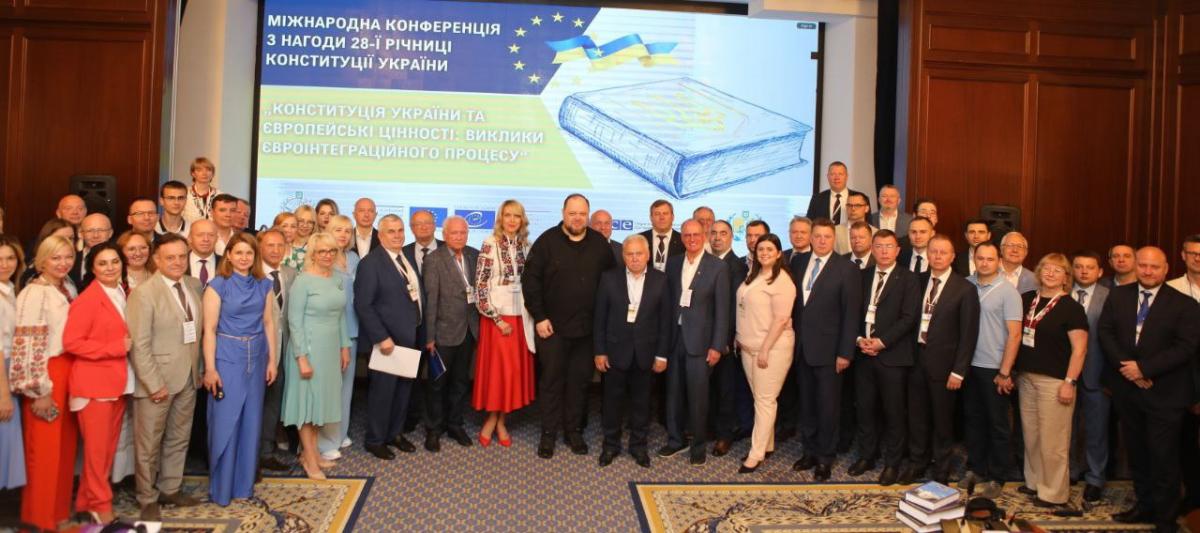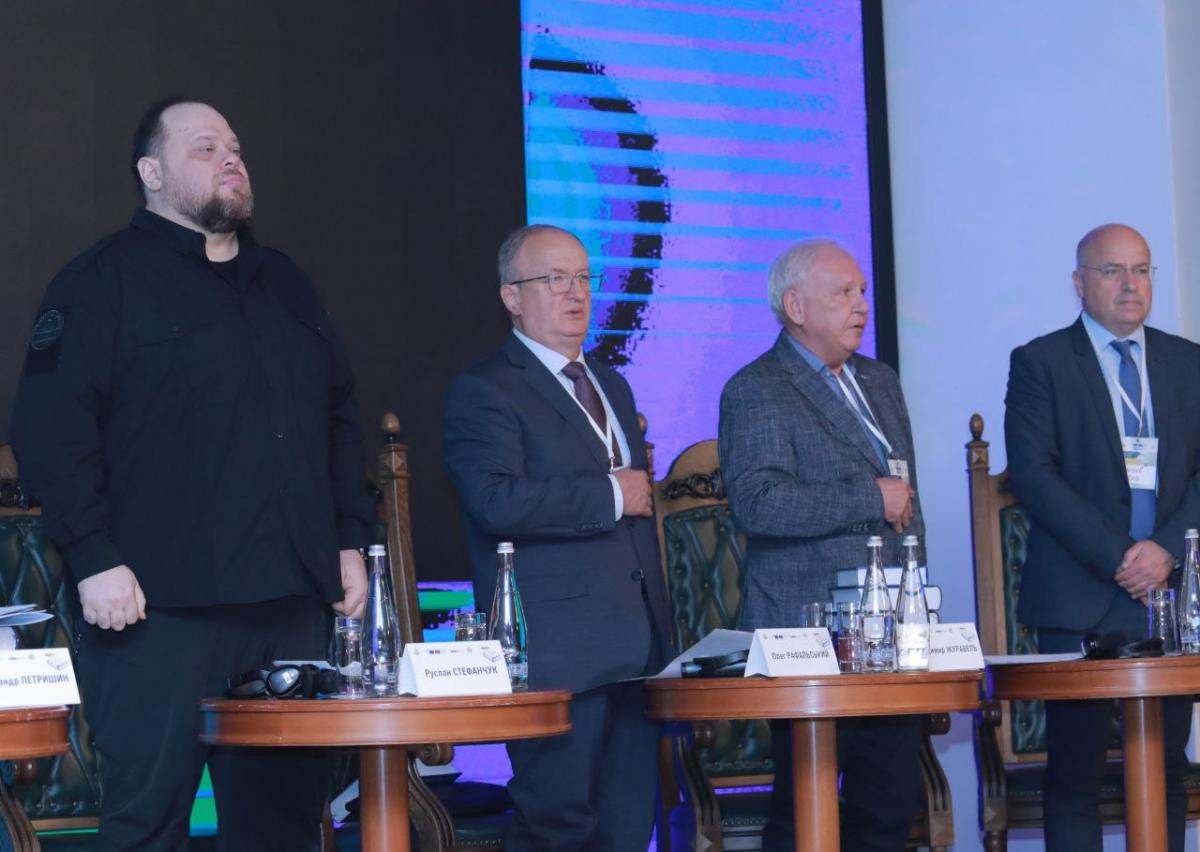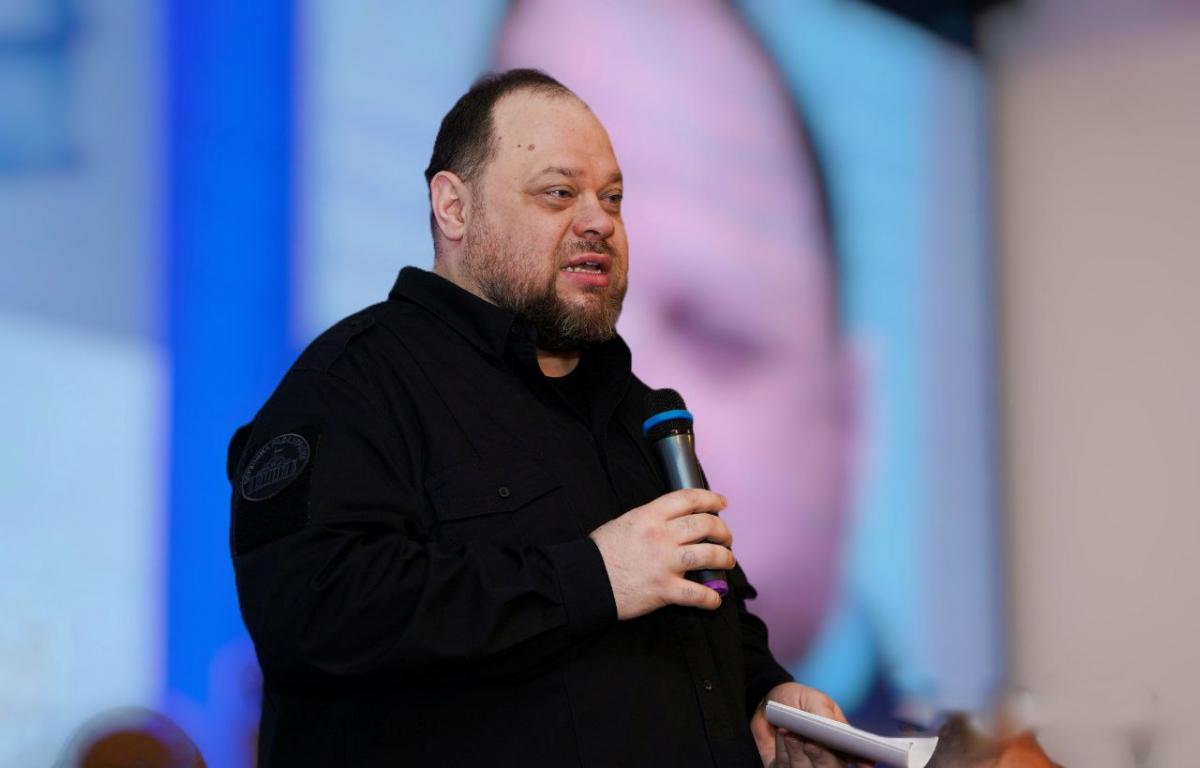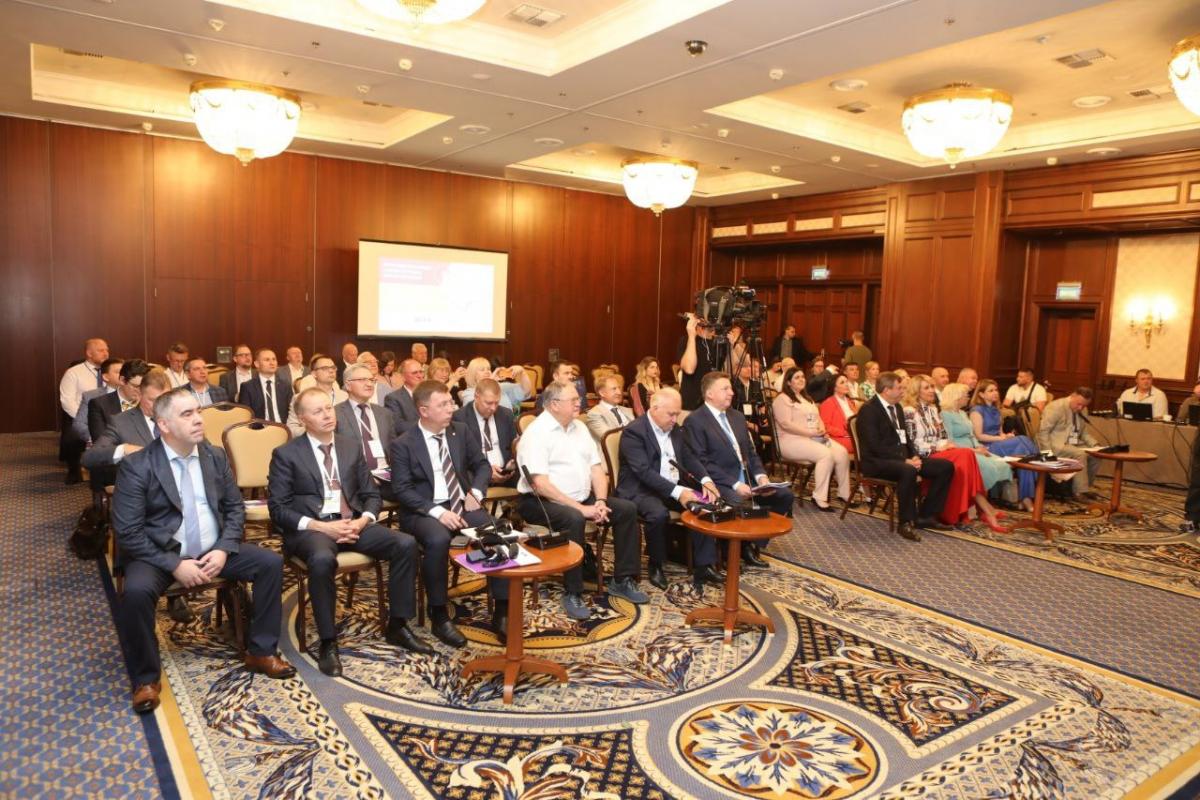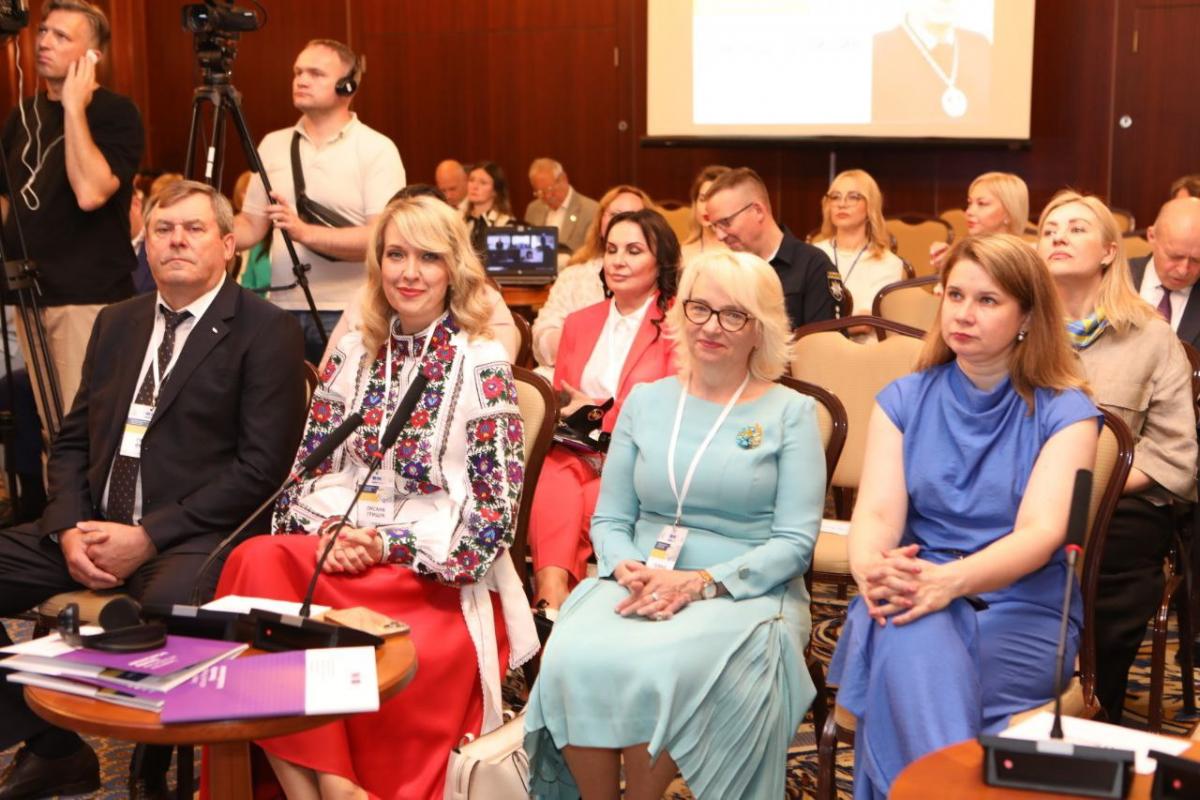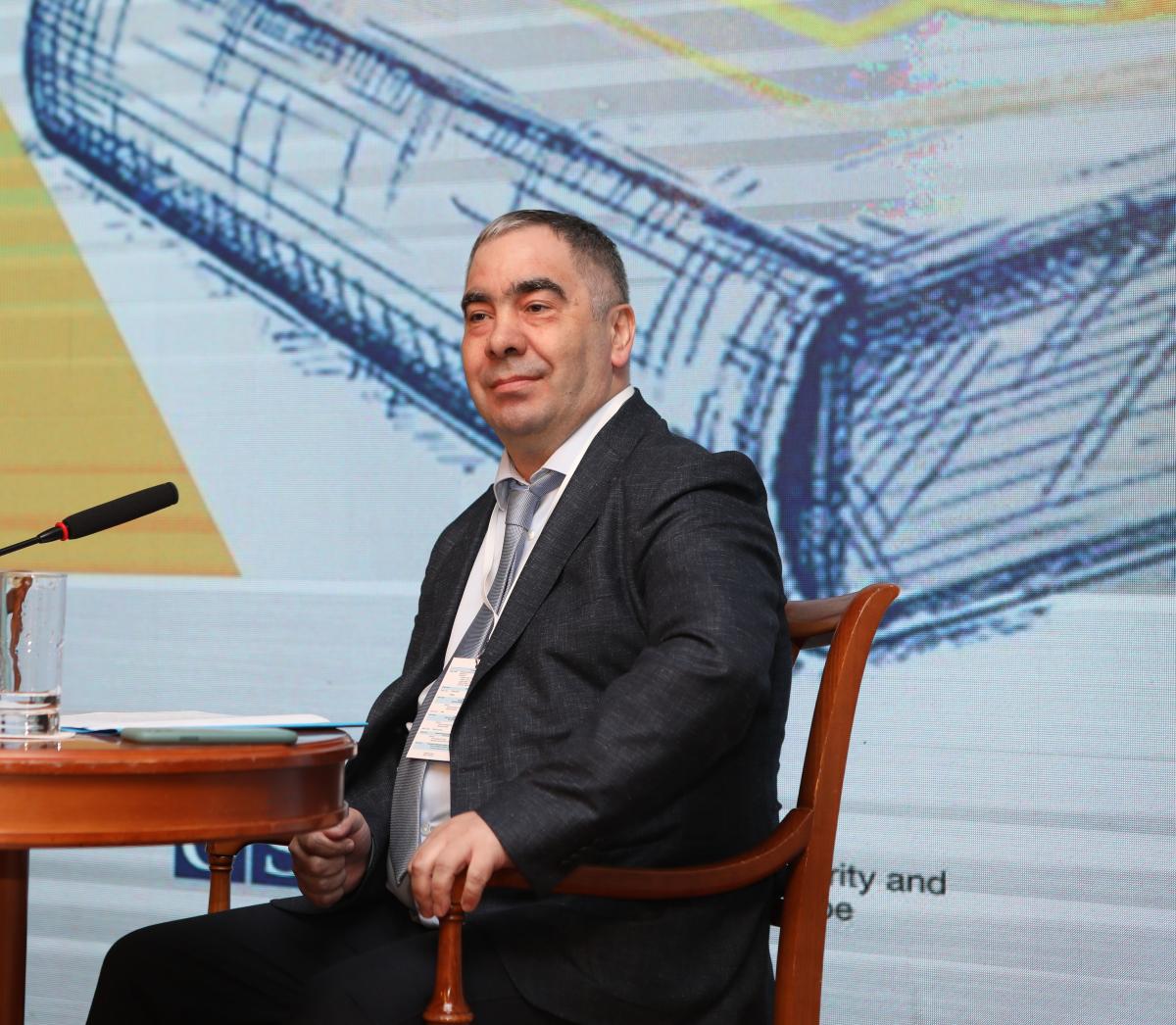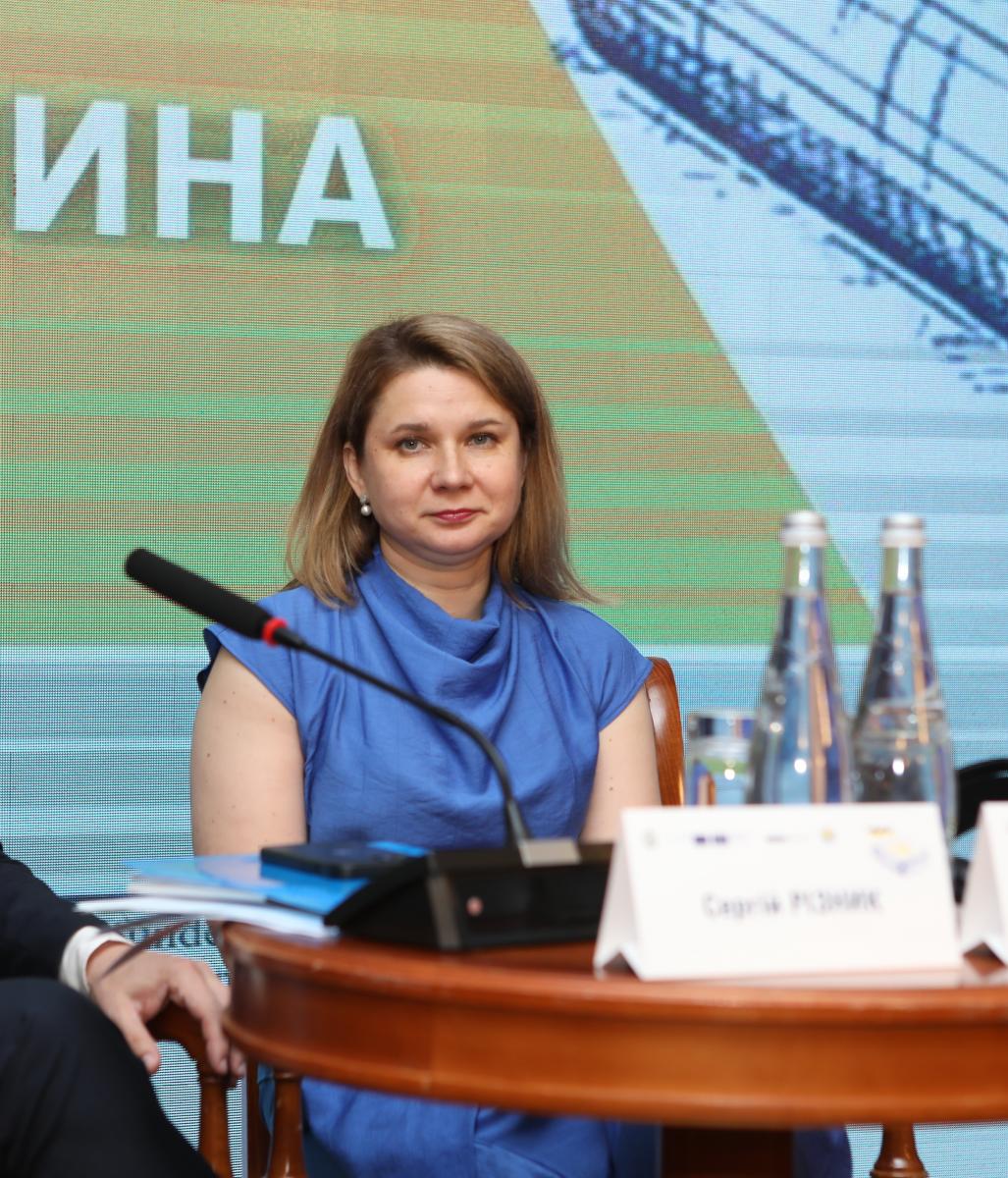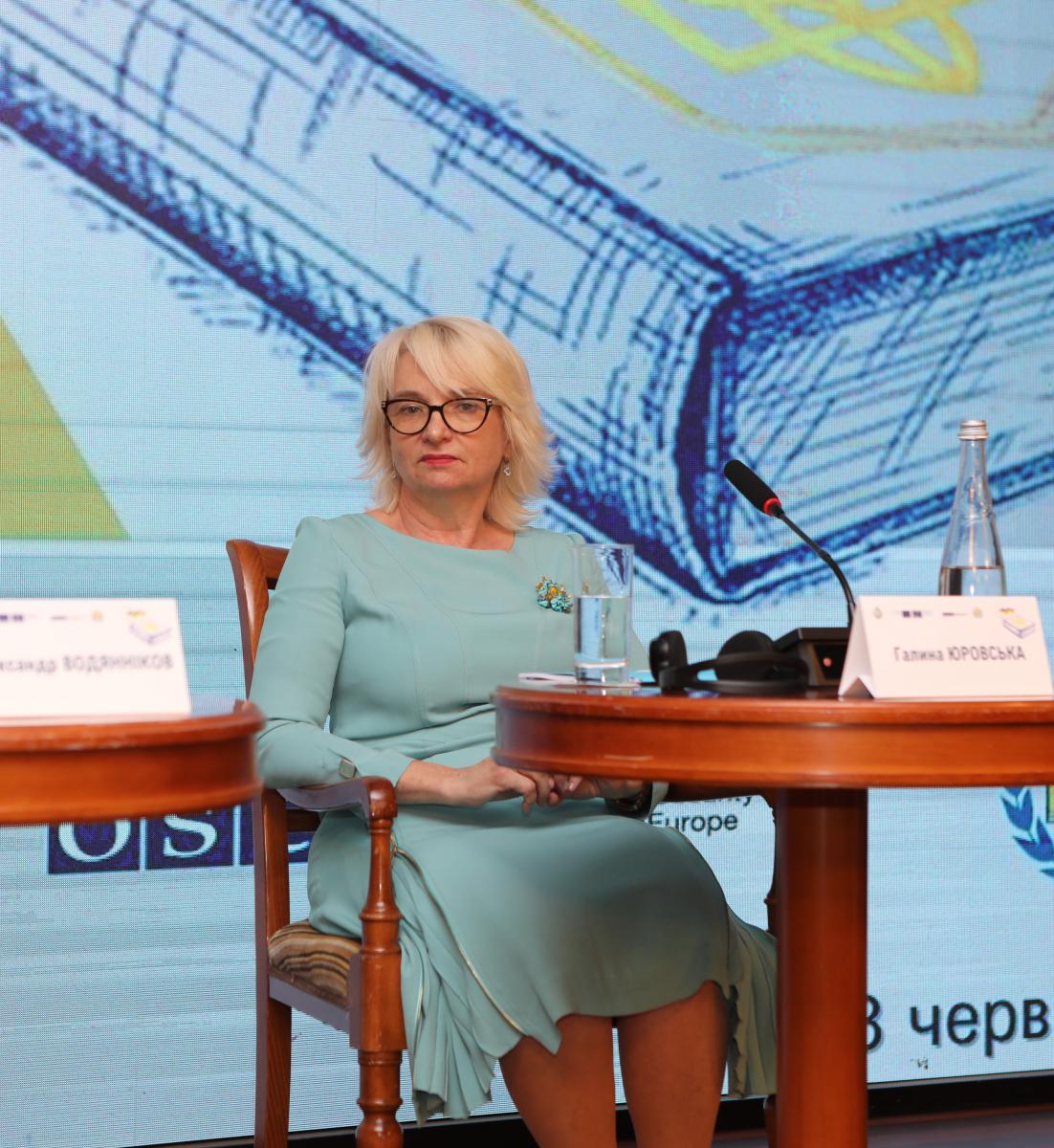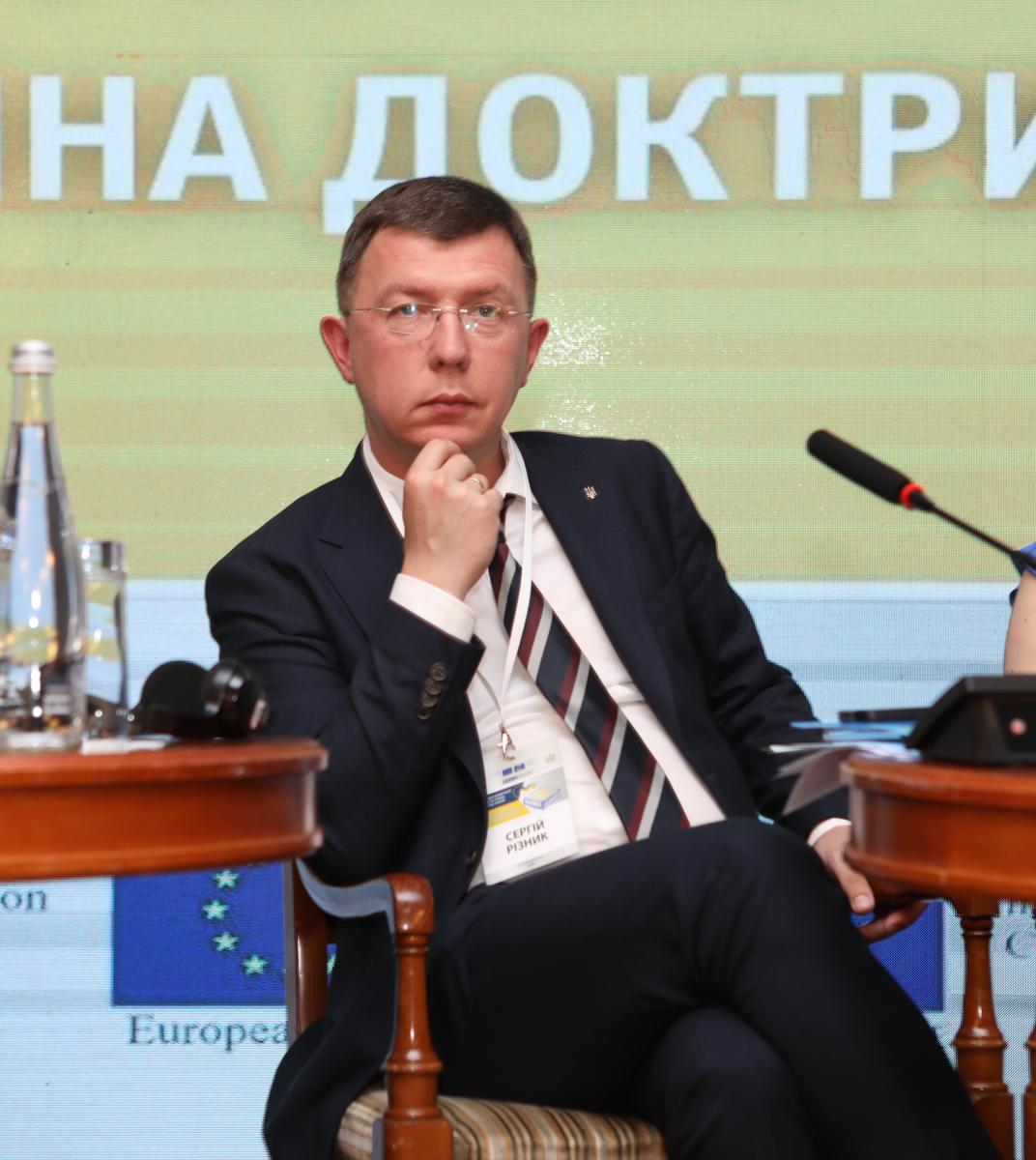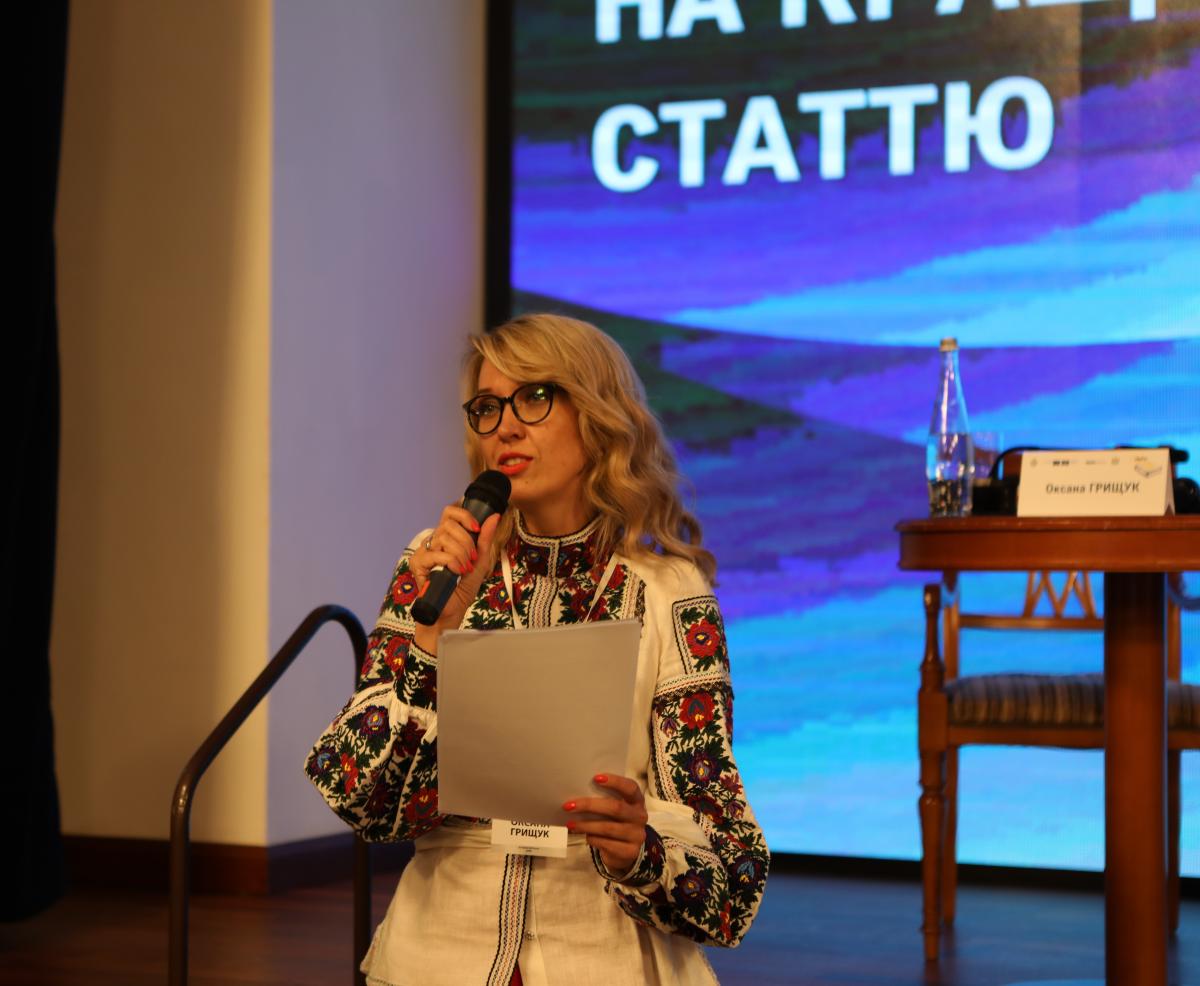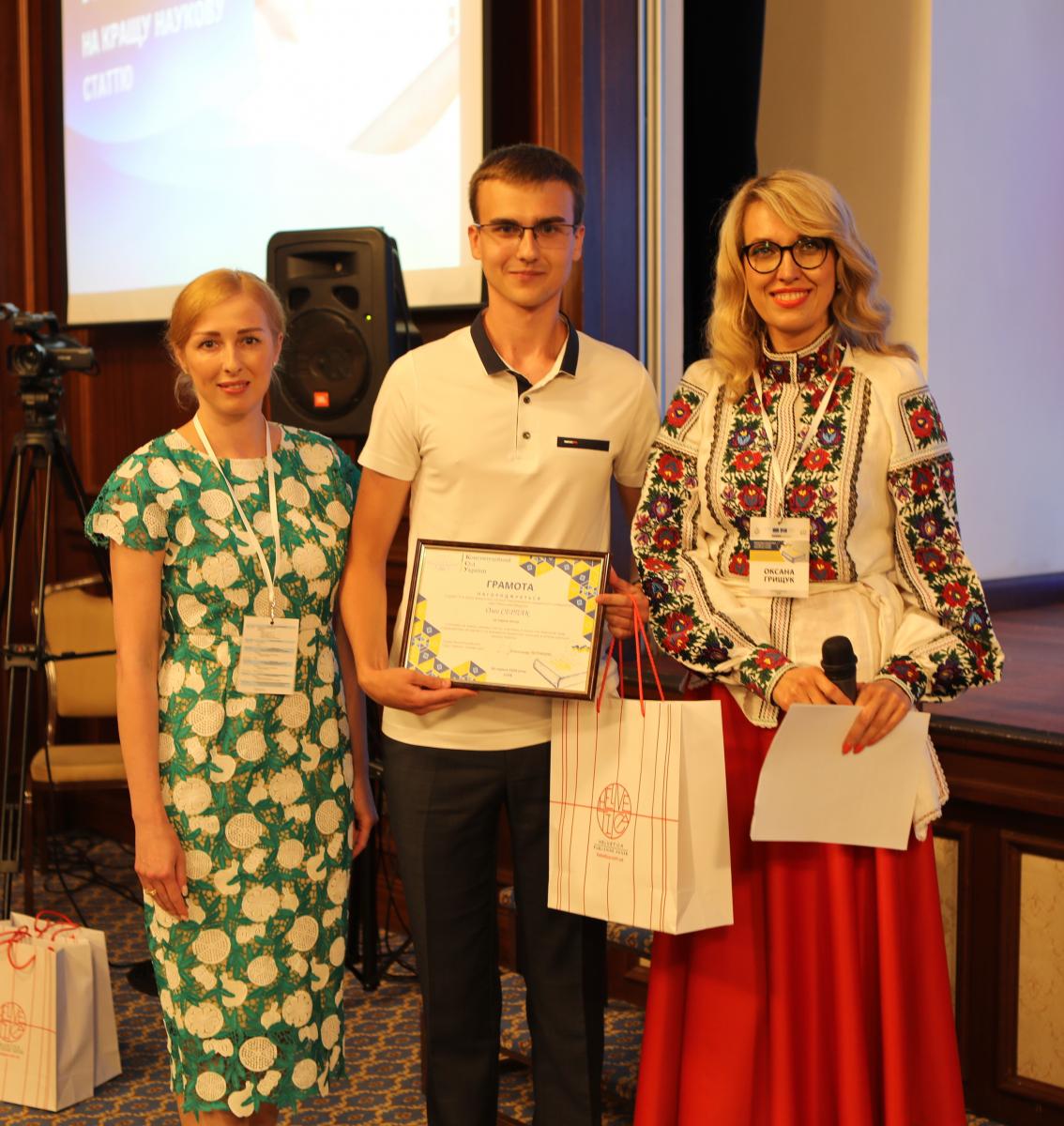On June 28, 2024, on the occasion of the 28th anniversary of the Constitution of Ukraine, the Constitutional Court of Ukraine held the International Conference “The Constitution of Ukraine and European Values: Challenges of the European Integration Process”.
The event was organised within the framework of the joint project of the Council of Europe and the Constitutional Court of Ukraine “Support to the Development of Constitutional Justice in Ukraine”, implemented within the third Phase of the joint programme of the European Union and the Council of Europe “Partnership for Good Governance” as well as the joint project of the Constitutional Court of Ukraine and the OSCE “Support to National Stakeholders in Enhancing Accessibility of Constitutional Justice”.
The conference brought together judges of the Constitutional Court of Ukraine and former judges of the Constitutional Court of Ukraine, national and international experts in the field of constitutional law, representatives of constitutional jurisdictions of foreign countries and international organisations.
During the event, the participants shared their experience and approaches to protecting fundamental rights and freedoms of citizens in wartime and crisis periods. They discussed the practical aspects of implementing international legal acts into national legislation, as well as the role of the Constitutional Court in these processes.
The conference was opened by Judge of the Constitutional Court of Ukraine Oleksandr Petryshyn, who on behalf of the Constitutional Court of Ukraine addressed the participants with a welcoming speech, expressing gratitude to the event organisers and all those present.
He emphasised that the adoption of the Constitution of Ukraine on June 28, 1996 was a historic event that determined the destiny of the Ukrainian people. The Constitution has strengthened Ukraine's international authority and laid the foundations for the development of democracy, the rule of law, equality and people's power in our country.
During the 28 years of the Constitution's being in the effect, our state has gained significant achievements, made immense progress, and established its European identity by enshrining in the Fundamental Law the requirements for membership in the European Union and the North Atlantic Treaty Organisation. Ukraine's obtaining the status of an EU candidate in 2022 and formal accession negotiations are evidence of our determination and resilience.
Today, we understand that the European worldview and values are the keys that open the way to a better future. Our step-by-step but persistent approach to the European Union requires us not only to know but also to embrace European values, so that they become vital for every generation of Ukrainians.
Therefore, I believe that the conference we are holding today in two sections will help to better understand the importance of European values and their implementation in the country, as well as the role of the judiciary and the Constitutional Court of Ukraine in this regard.
The Chairman of the Verkhovna Rada of Ukraine, Ruslan Stefanchuk, also addressed the participants with a welcoming speech. He noted that the Constitution Day of Ukraine is a crucial and fundamental event, as the Ukrainian people have been given the opportunity to live in a democratic, sovereign state governed by the law.
The Chairman of the Verkhovna Rada of Ukraine has announced that Ukraine has received a historic decision to start negotiations with the European Union on membership. “This is a historic moment for Ukraine, behind which is the blood and tears of the Ukrainian people, the prowess of Ukrainian soldiers and each of us.”
He also stressed that the Verkhovna Rada of Ukraine has already done a lot for the country's progress. This includes the adoption of a number of European integration laws that gradually bring Ukraine closer to the European Union. In addition, the Parliament adopted a law to improve the procedure for selecting candidates for the position of a judge of the Constitutional Court of Ukraine and elected one judge under a new competitive procedure.
The Chairman of the Verkhovna Rada of Ukraine noted that our Constitution has stood the test of time in the most difficult period for Ukraine. We can confidently say that the Constitution is working, and the foundations of the constitutional order are secured. This is an example for many countries that doubted Ukraine's statehood, the speaker said.
Maciej Janczak, Head of the Council of Europe Office in Ukraine, congratulated the conference participants and Ukrainians on this national holiday. He noted that the Constitution is not only the highest legal act in the state, with which all laws of the state must be in line, but also the cornerstone of human rights protection and the rule of law in the state.
Maciej Janczak stressed the importance of the reforms taking place in the field of constitutional justice in Ukraine. In this context, he congratulated the newly appointed judge of the Constitutional Court of Ukraine and noted that the judge was appointed under a transparent, fair selection process with the participation of international experts in accordance with the recommendations of the Venice Commission.
He also stressed the important role of the Constitutional Court of Ukraine in ensuring human rights and the rule of law. He underlined that Ukrainian judges, and in particular judges of the Constitutional Court of Ukraine, are well aware of the ECHR case law, legal instruments and methodologies of the Court of Justice of the European Union. He thanked the Court for its cooperation and expressed his conviction in further facilitating the exchange of experience between the Constitutional Court of Ukraine and the constitutional courts of the European Union and expressed his readiness to support Ukraine on its way to the European Union.
Head of Operations, Section 1 “European Integration, Governance and Rule of Law, Civil Society”, European Union Delegation to Ukraine, Asier Santillan Luzuriaga, congratulated Ukraine on the 28th anniversary of the adoption of the Constitution of Ukraine and the initiation of negotiations with the European Union on Ukraine's membership. The Constitution, he said, is the father and mother of all laws, the legal framework of the state, a contract between citizens and those who serve the state. This is the contract that, in the case of Ukraine, unites a democratic system based on the rights of citizens and this contract requires judges to mediate in resolving certain issues.
He welcomed the election of one of the Constitutional Court judges under a new competitive procedure and stressed that the state needs a strong Constitutional Court now more than ever before, given all the reforms that accompany the European integration process.
Asier Santillan Luzuriaga stressed that the achievements of the rule of law reforms should be sustained, as they are not only a condition for further progress towards EU accession, but will also strengthen Ukraine's resilience in times of war, improve the business and investment environment in Ukraine and contribute to the recovery process.
Special Representative of the OSCE Chairmanship – the OSCE Projects Co-ordinator in Ukraine, Ambassador Marcel Peško, paid tribute to brave men and women who are now at the frontline. At the same time, he noted that victory is forged not only on the battlefields, but also in shaping the vision of the future.
“The vision of the post-war Ukraine, including foremost the rule of law and human rights, democracy, gender equality and gender dimension of post-war reconstruction, European integration, transitional justice is now needed by the Ukrainian society as never before,” he said.
He noted that in 2014, the nation rose up to defend its civilizational choice. Today on bloody battlefields of this war, as was 10 years ago on burning barricades in Kyiv, people defend their dream – the dream of Europe, of commonwealth of values, principles and equal opportunities.
He expressed his belief that the OSCE in Ukraine, as always, will be an effective tool an effective tool to help Ukrainians bring forth this dream. “We stand ready to continue the excellent co-operation with the Constitutional Court of Ukraine, regional and local authorities, academia and civil society.”
In his speech, Vice President of the National Academy of Sciences of Ukraine Oleg Rafalskyi stressed that one of the most important strategic provisions of our Constitution is the embodiment of the state's strategic course towards full membership in the EU and NATO. He noted that the state faces many issues that require joint efforts to resolve. Therefore, Oleg Rafalskyi emphasised that one of the most important activities of the National Academy of Sciences of Ukraine is legal and economic support of the European integration process, which is carried out in various ways.
According to him, the National Academy of Sciences of Ukraine is also actively involved in supporting the activities of the Constitutional Court of Ukraine, in particular, providing scientific opinions, representatives of the Academy actively participate in events, etc. “The fruitful combination of the scientific potential and jurisprudence of the Constitutional Court of Ukraine creates the basis for the integration process and the introduction of European values into the life of Ukrainian society.”
Volodymyr Zhuravel, President of the National Academy of Legal Sciences of Ukraine, greeted the participants of the scientific conference on the occasion of the Constitution Day of Ukraine. The scholar noted that the adoption of the Constitution was a landmark event in our country. He reminded that at the time when the Constitution of Ukraine was adopted, the social and political situation in the country was difficult.
“The Constitution of Ukraine has entered public life as a guardian of statehood, democracy, and a guarantor of Ukraine's independence and unity. It is the foundation on which the present is based and the future of the Ukrainian people is being built.”
He stressed that the main thing is that this political and legal document – the state passport of Ukraine – enshrines what numerous generations of Ukrainians not only dreamed of, but shed blood for, and, unfortunately, are still shedding blood for today - human rights, which the Russian invaders are trying to take away from us by unleashing this full-scale and bloody war.
Volodymyr Zhuravel stressed that the war affects the entire Ukrainian people, but especially those living in the border and frontline regions. In particular, the residents of the heroic city of Kharkiv, who are constantly subjected to numerous attacks. The Russian-Ukrainian war convinces and proves that joining the European Union and membership in the North Atlantic Alliance is a reliable guarantee of security, as stated in the preamble to the Constitution of Ukraine and an important task is to implement these provisions.
In his opinion, Ukraine's accession to the European Union will not only strengthen Ukraine, but Ukraine will strengthen the EU.
The conference included two sessions where participants discussed the constitutional doctrine and practice of the rule of law and the issues of human dignity and human rights in the realities of martial law.
The participants of the first session focused on the topic “Rule of Law: Constitutional Doctrine and Jurisprudence”. They discussed ensuring the rule of law in Ukraine in the light of the ECHR case law, the impact of European values on the development of Ukrainian constitutionalism in the context of current challenges, constitutional amendments to the chapter “Justice” and their impact on the development of the judicial system, protection of rights and constitutional principles in emergency situations, and the doctrinal dimension of the practical implementation of the rule of law in the context of military threats.
They also analysed how martial law and emergency situations affect the protection of rights and how this is implemented through legal mechanisms in Ukraine, the legal positions of the constitutional courts of European countries on referendums on constitutional amendments, and historical aspects of the implementation of the state governed by the law and the rule of law principle in Ukraine.
The session was moderated by Judge of the Constitutional Court of Ukraine Viktor Gorodovenko.
In his speech, Judge of the Constitutional Court of Ukraine Serhiy Riznyk spoke about the rule of law as a criterion for the constitutionality of regulatory acts, emphasising the importance of this principle for ensuring democracy and stability in the state.
He emphasised that the principles of the common heritage of European peoples as a triad of European values - the rule of law, democracy, and human rights, which complement each other - are reflected in Article 8 of the Constitution of Ukraine, which recognises and promotes the rule of law in Ukraine.
According to Serhiy Riznyk, the principles of the rule of law and the rule of the Constitution are integral, so by ensuring the rule of the Constitution, which is what the Constitutional Court does, we protect the rule of law. In his speech, the judge analysed in detail the rule of law principle in the decisions of the Constitutional Court of Ukraine.
He stressed the importance of cooperation between the Constitutional Court of Ukraine and the academic community, noting that together we will build our Ukrainian national constitutional democracy based on the rule of law.
Judge of the Constitutional Court of Ukraine Olga Sovgyria conducted a comparative analysis of the legal positions of the constitutional courts of European countries on referendums on constitutional amendments and other issues that may be the subject of referendums. She emphasised their advantages and disadvantages, as well as the role of constitutional courts in this procedure.
The judge noted that in many European countries, constitutional courts play an important role in determining the legality and constitutionality of referendums on constitutional amendments. They review the referendum procedures and the wording of the proposed amendments to the constitution.
Constitutional courts may also have the power to review the results of a referendum on constitutional amendments and determine whether the results of the referendum are valid.
The judge named the countries where the current constitutions were adopted as a result of referendums and outlined the Guidelines for constitutional referendums at the national level formulated by the Venice Commission. In particular, she noted that one of the fundamental principles of the Venice Commission is judicial review of the compliance of all issues related to the organisation and conduct of a constitutional referendum with the applicable law, and emphasised the role of the Constitutional Court or the Supreme Court in this process.
The speakers at this session were Mykola Gnatovskyy, Judge to the European Court of Human Rights in respect of Ukraine (online video recording), Mykhailo Smokovych, President of the Administrative Cassation Court of the Supreme Court, Oleksandr Skrypniuk, Director of the Koretsky Institute of State and Law of National Academy of Science of Ukraine, Iurii Barabash, Vice-Rector of the Yaroslav Mudryi National Law University, Mykola Onishchuk, Rector of the National School of Judges of Ukraine, George Papuashvili, Special Advisor to the Constitutional Court of Ukraine and President of the Constitutional Court of Georgia (2006-2016).
The second session was devoted to the issues of human dignity and human rights in the realities of martial law. The participants discussed the impact of international legal standards on the domestic legal system, as well as the role of constitutional justice in ensuring compliance with international human rights obligations. The speakers emphasised the importance of international legal cooperation in ensuring human rights and compliance with international legal obligations to protect human rights in times of war. The session was moderated by Judge of the Constitutional Court of Ukraine Oksana Hryshchuk.
Vasyl Lemak, Judge of the Constitutional Court of Ukraine, spoke on the topic “The Constitution of Ukraine through the prism of efficiency: the main problems” and described the main challenges facing our country.
Vasyl Lemak noted that the Constitution Day is a good opportunity to analyse the extent to which the Constitution of Ukraine is an effective and efficient document. He emphasised that the Constitution creates a system designed to guarantee and protect human rights.
The speaker noted that the effectiveness of the Constitution is measured primarily by the level of protection of its value core. The constitution-maker, who adopted the Constitution, protected its core through the mechanism of compliance with Articles 157 and 158 of the Constitution of Ukraine. These articles protect the eternal values of human rights, territorial integrity and independence of our country. Vasyl Lemak emphasised that in 2019, the Constitutional Court of Ukraine suspended several draft laws amending the Constitution with its opinions, recalling that winning political elections does not in itself give carte blanche to arbitrarily change the Constitution of Ukraine. He therefore emphasised the importance of the checks and balances mechanism, without which full protection of human rights and true democracy are impossible, and noted that the purpose of the Constitution must be implemented continuously. This implies, in particular, that it is unacceptable for constitutional bodies to suspend their activities even temporarily.
In his speech, Vasyl Lemak noted that over 27 years, the Constitutional Court of Ukraine has delivered more than 420 decisions, most of which have found the unconstitutionality of legal provisions. This means, in his opinion, that the Constitutional Court of Ukraine has actually proved its ability to perform the counter-majoritarian function of constitutional proceedings, intended to restrain the political process within the framework of the Constitution.
The speaker noted that even during a full-scale war, the Court continues to perform its functions, proving that the principle of separation of powers is effective, and that the location of all state authorities within the constitutional framework not only ensures the rule of law and protection of individual human rights, but also strengthens the constitutional order of Ukraine as a whole. This ability, Vasyl Lemak is convinced, is particularly important in the context of martial law.
In her report, Judge of the Constitutional Court of Ukraine Galyna Yurovska spoke about the application of the European Union acts and judgments of the Court of Justice in the jurisprudence of the Constitutional Court of Ukraine.
The judge focused on certain decisions of the Constitutional Court of Ukraine based on international law and the case law of the Court of Justice of the European Union. In particular, these are the decisions on individualisation of legal liability for violation of consumer rights; on review of verdict of a person sentenced to life imprisonment.
She emphasised the importance of adapting European standards into the national legal system, which contributes to strengthening the rule of law and ensures compliance with Ukraine's constitutional principles and international obligations.
The expert discussion was attended by Jautrīte Briede, Judge of the Constitutional Court of the Republic of Latvia, Danutė Jočienė, Judge of the Criminal Cases Division of the Supreme Court of Lithuania, Former Judge of the European Court of Human Rights (2004-2013), Former Justice (2014-2023) and President (2021-2023) of the Constitutional Court of the Republic of Lithuania, international consultant of the Council of Europe, Pavlo Pushkar, Head of Division, Department for the Execution of Judgments of the European Court of Human Rights, Directorate General of Human Rights and the Rule of Law, Alexandru Tenase, Special Advisor to the Constitutional Court of Ukraine, member of the European Commission for Democracy through Law (Venice Commission), President of the Constitutional Court of the Republic of Moldova (2011–2017), Olena Boryslavska, Head of the Department of Constitutional Law, Faculty of Law, Ivan Franko National University of Lviv, Oleksandr Vodiannikov, Senior Project Associate, the OSCE Support Programme for Ukraine.
As part of the conference, the participants were presented with the Scientific and Practical Commentary on the Constitution of Ukraine.
The winners of the competition for the best scientific article related to the protection of human rights were also awarded with certificates of the Constitutional Court of Ukraine and memorable souvenirs.

